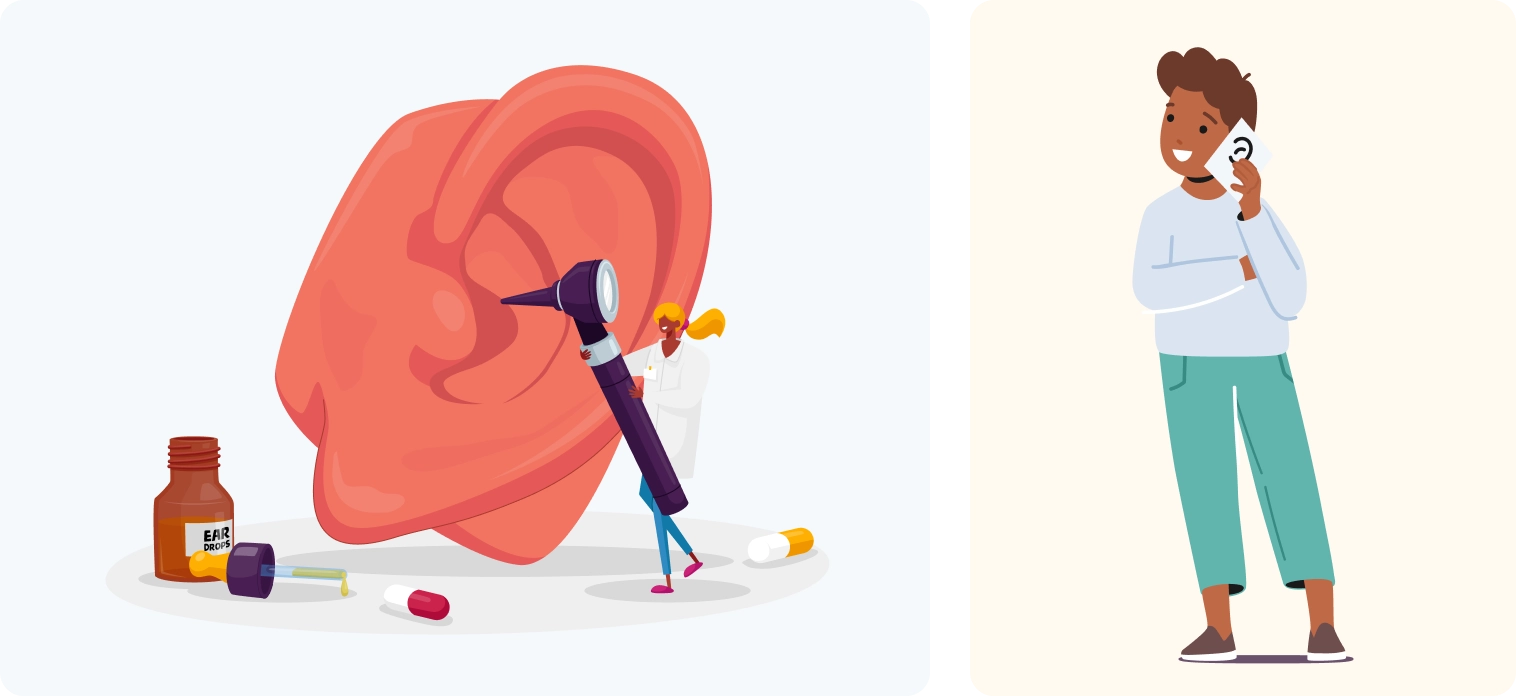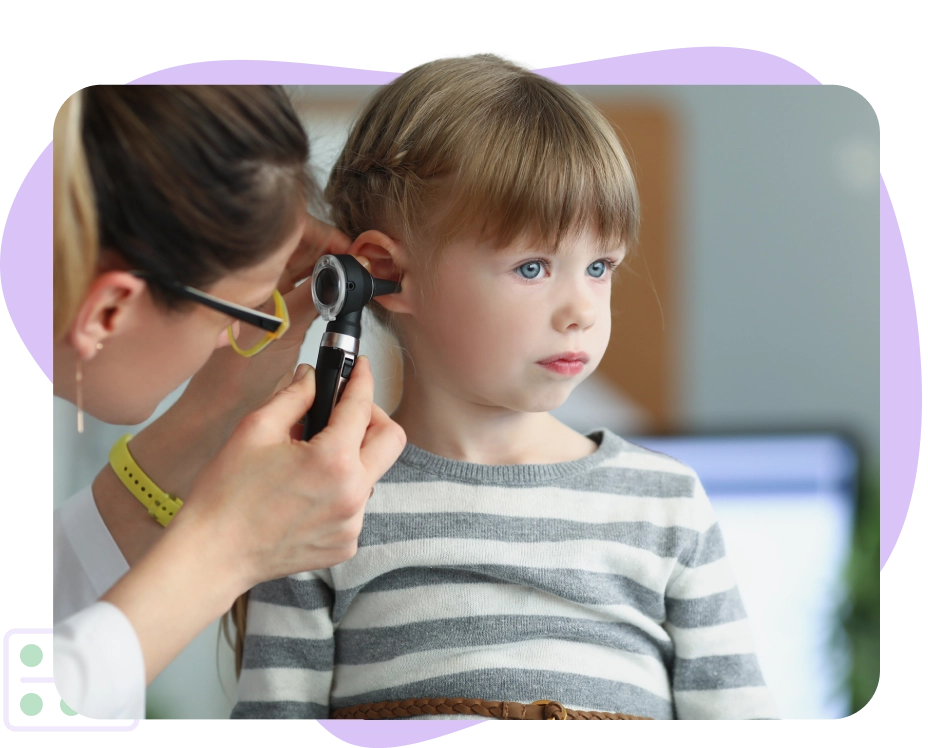Overview
Ear infections (acute otitis media) in children are very common especially among those under 5 years old. They cause inflammation in the area behind the eardrum that can lead to pain, pressure, and sometimes temporary hearing loss.
Small children may have lots of ear infections in one year, sometimes as often as once every month. Fortunately, most ear infections in children get better quickly, within 3 days, and are not usually serious.

Symptoms
Common signs of ear infections in children
- Pain or feeling of pressure inside the ear
- Itching or pulling at the ears
- Fever (high temperature)
- Irritability or fussiness, especially in infants
- Difficulty sleeping
- Fluid or discharge draining from the ear
- Temporary hearing loss or difficulty hearing
- Balance problems or clumsiness
Causes
Ear infections, are primarily caused by bacterial or viral infections in the middle ear. Outer ear infections are usually due to excess moisture in the ear canal, for example after swimming. They can also be caused by damage to the ear canal (e.g. from scratching or cleaning with earbuds).
Common causes of middle ear infections
- Bacteria or viruses such as those that lead to common colds can cause congestion that obstructs the Eustachian tube (the tube that connects the middle ear to the back of your throat), preventing the middle ear from draining and creating a moist environment conducive to bacterial growth.
- Exposure to cigarette smoke, and polluted air.
- Contact with other kids who have colds.
- Allergies, such as allergic rhinitis (hay fever), can cause inflammation and congestion in the nasal passages and Eustachian tubes.
- Using a dummy or pacifier in babies older than 6 months old.
- Having a cleft lip or palate, or having Down syndrome.
Treatments
Treatment for ear infections in children often depends on the severity of their symptoms and whether the infection is bacterial or viral.
For minor ear infections
- Use over-the-counter pain relievers such as ibuprofen or paracetamol to help alleviate discomfort (children under 16 years old should not take aspirin).
- Remove any discharge coming out of the ear with cotton wool.
- Wait. May ear infections resolve on their own within a few days.
For bacterial or more severe or recurrent ear infections
- Antibiotics
- Ear tube surgery (tympanostomy) or grommets may be recommended to help ventilate the middle ear and prevent fluid accumulation.
FAQs
When should I seek medical attention for my child’s ear infection?
Seek medical attention for your child if:
- They are under 6 months old and show signs of an ear infection.
- Their symptoms are severe or persistent.
- They get an ear infection more than 3x in 6 months or more than 4x in a year.
- They experience hearing loss or speech delays associated with ear infections.
At what age do kids stop getting ear infections?
Most kids grow out of getting ear infections by age 5.
Children are more vulnerable to getting ear infections because their immune systems are less equipped to fight off infections, their eustachian tubes are smaller and more horizontal than in adults (making it more difficult to drain fluids), and their adenoids are relatively much larger (until about age 4) blocking the eustachian tubes.
How does dummy use lead to ear infections?
Studies show the risk of recurrent ear infections is up to 3x times higher in those who use a dummy vs those who don’t. There are different theories as to why this happens, but it may have something to do with the change in pressure equilibrium inside the ear.




























